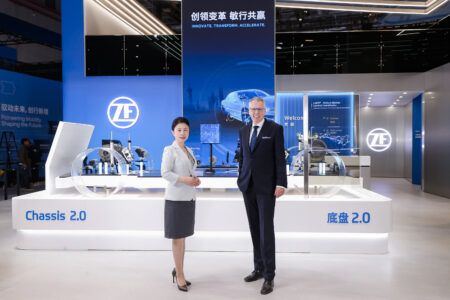Following an initial 12-month project, Britishvolt and WMG are now embarking on a two-year program of work. WMG’s research will assist with battery cell development and optimization including small-scale manufacturing to produce battery electrodes and cells using Britishvolt target materials sets, formulations and cell designs. These will then be tested according to Britishvolt’s agreed protocols.
Dr Allan Paterson, Chief Technical Officer, Britishvolt, said: “Britishvolt is delighted to extend and expand our relationship and program of work with WMG, University of Warwick. The battery science, advanced materials and cell prototyping expertise and capability at WMG has directly, and positively, supported our battery technology development program”, adding: “The relationship also enables Britishvolt to continue to develop our products further, as we continually strive to deliver best-in-class, market-leading, cell technologies to our customers.”
The project is helping Britishvolt to deliver a 38GWh battery Gigaplant, one of the largest industrial investments ever undertaken in the UK. The facility, located in the North East of England, will quickly increase the availability of batteries required at commercial scale for the electric vehicle market, and beyond – playing a key role in helping the UK reach its carbon net zero target by 2050.
Professor David Greenwood, CEO of the High Value Manufacturing Catapult at WMG, said: “WMG, at the University of Warwick, is delighted to be supporting Britishvolt as they set up large scale battery manufacturing and research facilities in the UK. This industry will be critical for the future of the UK automotive and energy sectors. WMG has been investing over the last decade in the research and development capabilities needed to help Britishvolt and other battery companies to be internationally competitive now and in the future.”
The Northumberland Gigaplant will have a total capacity of over 38 Gigawatt Hours by the end of the decade and will produce enough cells for 300,000 electric vehicle battery packs per year, intended primarily for use in the automotive industry. The development is expected to deliver 3,000 direct skilled jobs and another 5,000 or so in the associated supply chains.
The release of an official A-sample battery cell to customers, which is scheduled later in 2022, will help to further accelerate commitments to a low-carbon electric future.
Britishvolt recently announced that it will develop its UK battery cell scale-up facility in the West Midlands, home to the internationally renowned battery ecosystem With a budget exceeding £200m (US$245m), the plan looks to create upwards of 150 highly skilled, well-paid jobs; unifying the Britishvolt Northumberland Gigaplant with a centrally located scale-up/technology hub
The Hams Hall site will spearhead new cell formats and electro chemistries to create higher performance, production ready, batteries of the future whilst helping lower cell costs for more affordable EVs, aiding mass adoption
The company is also in discussions with the Canadian Government regarding its expansion plans in the country.




